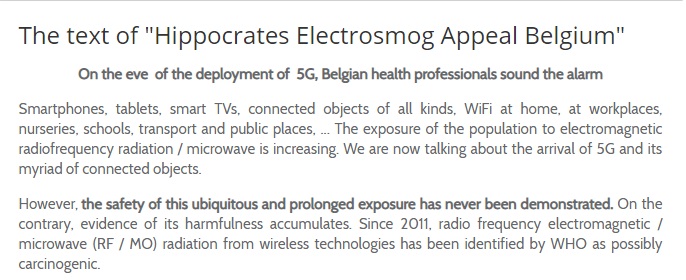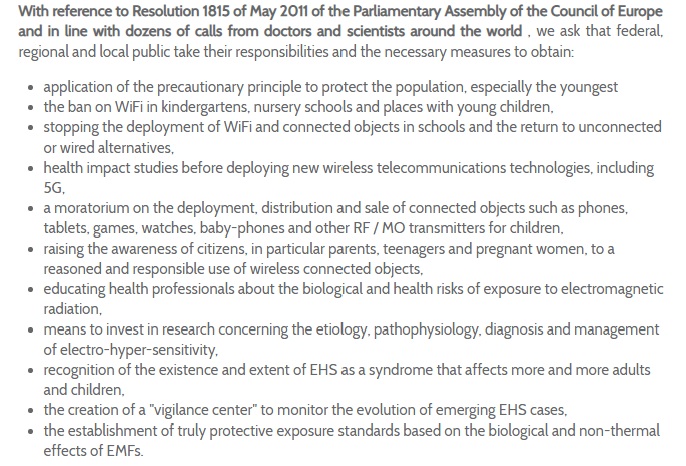In a Telecompaper of Oct 23, 2018 the Brussels region environment minister Celine Fremault said she plans to propose an increase in the region’s limits for electromagnetic radiation from cell antennas, in order to support the roll-out of 5G networks, which will require many more antennas. She announced the move in an interview with L’Echo after the regulator BIPT released a report showing that 5G networks would not be possible under the current radiation limits.
In July, the government concluded an agreement with three telecom operators to relax the strict radiation standards in Brussels. The proposal of the revision of the standards of emissions of Brussels was to go to 14.5 volts / meter – a minimum (outside), acceptable by the sector only in the short term -, compared to 6 currently (a limit fifty times stricter than what is recommended by the World Health Organization). This is to allow the emergence of the ultra-fast mobile internet on the one hand, but also to cope with the rise in data consumption on the other hand .
But now, it will not be for this legislature. According to the Region, it is now impossible to estimate the radiation from the antennas required for 5G.
A 5G pilot project is not feasible with the current radiation standards, and Fremault told Bruzz that she does not intend to make an exception.
Céline Fremault explains: ” …since July (when a Memorandum of Understanding was signed between Region and operators in order to make Brussels the first Belgian city to welcome 5G by 2020, Ed) I never stopped working on the file, with a whole series of essential health indicators…” The Brussels Minister for the Environment relies on the conclusions of the telecoms regulator (BIPT), the committee of experts (set up at the end of 2014), the Economic and Social Council (CESRBC), the government of the Wallonia-Brussels Federation, the Council of State, but especially on the opinion, arrived this week, of the Council of the environment (CERBC). “This is the first time we have asked for so many opinions on emissions standards “.
The Brussels region has particularly strict radiation standards for telecom applications. The standard of 6 volts per metre has already led to problems in the past with providing fast mobile internet via 4G in the capital.
Another spike in the 5G wheel for Brussels is that last week the various governments in Belgium once again failed to reach agreement on the auctioning of the 5G licences. The file remains stuck on the distribution of the proceeds. It will be up to the next government to handle the proposal, said Telecom Minister Philippe De Backer (Open VLD) last week. The European Commission wants each EU member State to offer 5G coverage in at least one city by 2020 and in all urban areas by 2025.
The question of “with or without Huawei” that drives the telecom sector does not help either.
China, India, Russia, Switzerland, Italy Canada and Poland enforce national laws with more stricter limits than ICNIRP. However Poland is “on the last stretch” to implementing legal changes that will make it easier to develop the 5G network in the country, including the necessary infrastructure. Will other countries follow suit?



